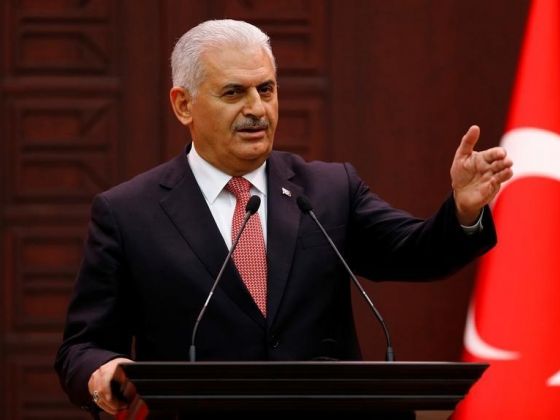Ankara Beirut -Turkey gave the first clear signal it would return its relations with Syria to the prosperous phase, before the start of the Syrian revolution against Bashar Assad’s regime in March 2011.
Turkish prime minister, Binali Yildirim, announced in a clear statement broadcasted live on television that Turkey would normalize its relations with Syria, the same way it did with each of Israel and Russia.
Yildirim said: “We will expand our relations internally and externally, and we have already started doing so at the foreign level when we normalized relations with Israel and Russia. I am sure we will normalize relations with Syria as well. We need it. For the fight against terrorism to succeed, stability needs to return to Syria and Iraq.
Asharq Al-Awsat newspaper had quoted a source at the Turkish Foreign Ministry on July 9, 2016 as saying that “Turkey might accept the presence of Assad for a 6-month transitional period, through an agreement with the international forces, particularly Russia and the U.S.”
Analysts said the new pragmatic policy currently followed by the government of Yildirim, aims to protect Turkey’s interests by narrowing the circle of its enemies and reviving the economy, which was seriously damaged by the isolated policy Ankara had followed in the last few years.
Since he assumed power last May, Yildirim had repeatedly said Turkey looks for more friends and less enemies.
On Wednesday, Yildirim said: “It is our greatest and irrevocable goal: developing good relations with Syria and Iraq, and all our neighbors that surround the Mediterranean and the Black Sea.”
Last month, Turkey normalized relations with Israel, ending a 6-year of split. Turkey had also apologized to Russia for shooting down a Russian warplane on the Syrian border in November 2015.
As a first reaction to Yildirim’s comment, the Syrian opposition met in Istanbul.
Sources from the Syrian National Coalition of Syrian Revolution and Opposition Forces said “Turkey now considers the Syrian opposition, particularly the armed forces, as a heavy load.”
The sources said yesterday’s meeting of the opposition in Istanbul discussed the latest Turkish position regarding the situation in Syria and Yildirim’s statement about normalizing relations with Damascus. “We have decided to follow-up on the upcoming developments in the coming days and conduct some contacts with the Turkish government to clarify its position. ”
Meanwhile, Turkey’s Karar newspaper said Ankara had launched diplomatic contacts with Syria and that meetings currently held in Iran would witness important developments in the next phase.
Head of the Patriotic Party Dogu Perincek, who had strong relations with the Syrian authorities since the start of the revolution in Syria, told the newspaper that normalization between both countries is currently conducted by civil personalities and that Iran was chosen as a third party to host their meetings.
Perincek asserted that both Syrian and Turkish officials, are determined to continue talks and solve pending problems, as soon as possible.
Samir Nashar, a member of the Syrian opposition, told Asharq Al-Awsat that Turkey is now shifting its position to correct Ankara’s past policies. He said many Arab countries believed that Turkey had some ambitions in the Arab world, a conclusion that led to Turkey’s regional isolation.
Also, Ankara was accused it supported rebel factions in Libya and Syria, making Turkey lose its closest ally, the U.S. Nashar referred to the latest comments of Turkish President Recep Tayyib Erdogan, who had described Assad as a terrorist worst than ISIS, adding: “The foreign policy is set by Erdogan and not the prime minister, therefore, I consider the Prime Minster’s comments as a message to show Turkey is serious in reaching a political solution (in Syria).”
He said it was still very early to measure the degree of Turkey’s shift in the Syrian file, but it is certain that Ankara will be more open to reach a political solution and even might accept Assad for a transitional period.
Yezid Sayigh, a senior associate at the Carnegie Middle East Center in Beirut, told Asharq Al-Awsat that leaked reports saying Turkey would accept Assad for 6 months “means that Turkey accepts Assad as a president.”
Sayegh said the new Turkish position was not just a reflection of its improved relations with Russia.
“The Turkish position hints that Ankara accepts living with Assad as the President of Syria.”
Sayegh added that Turkey would not shift its policies without an exchange.
